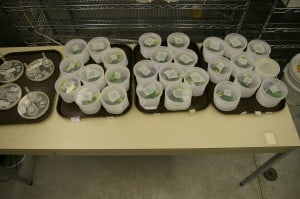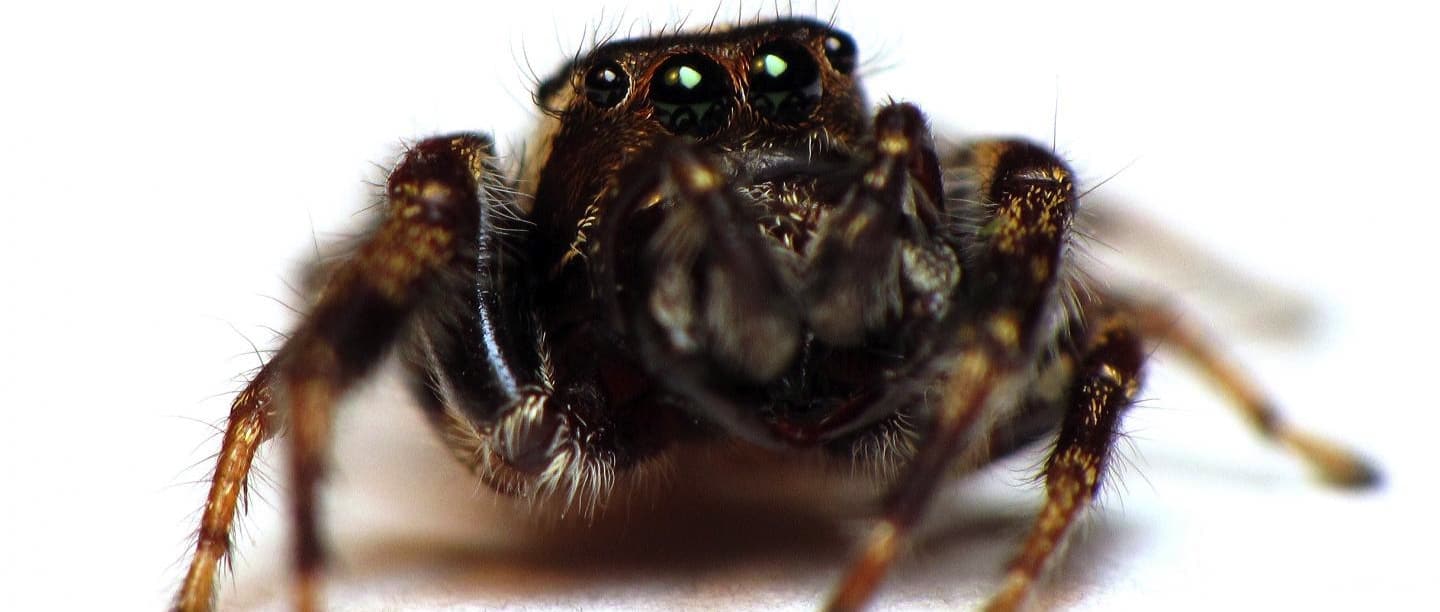Share this article
Insecticides Alter Spiders’ Personalities and Behaviors
Consume the same amount of alcohol as your friend, and you may notice that you’re acting a little loopier than them, or vice versa.
This is the idea that urged Raphaël Royauté to study how insecticides affect a spider’s personality and behavior during his PhD at McGill University. While farmers use insecticides to kill pests such as moths and fruit flies, they are unintentionally interfering with the spiders’ ability to do their job, which ironically, is also to kill pests.
“We know that individual [spiders] have their own way of behaving, like a personality, just like pets have unique tendencies — whether they are shy, sociable or dominant,” said Royauté, who is the lead author of the study published in Functional Ecology. “This phenomenon is very common in wildlife including spiders. But researchers are only beginning to unveil the wider consequences of wildlife having personalities for various ecological processes.”
Royauté and his research team conducted experiments on bronze jumping spiders (Eris militaris), which play an important role in controlling pests in agricultural systems, to determine how their behaviors changed when they were exposed to Phosmet, a broad spectrum insecticide that controls multiple pests at the same time.

Researchers reared bronze jumping spiders in deli container cups as part of an effort to study the spiders’ personalities and determine how exposure to insecticides impacted their behavior.
Image Credit: Raphael Royauté
The researchers focused on two behaviors that are critical for spiders’ ability to control pests: their ability to leap on prey and to explore new habitats. To measure those behaviors, they placed a fruit fly and a spider in a petri dish to determine how long it took for the spider to capture the prey and also placed the same spiders in an open field arena to determine how they explored their environment. This experiment allowed them to estimate a baseline of personality differences among the spiders in absence of insecticide exposure, Royauté said. Some spiders were much quicker when it came to attacking prey or exploring their environment.
The researchers conducted the same experiment on spiders exposed to the insecticide and found that the individuals were less likely to behave according to their personality type. Royauté and his team were surprised to find that male spiders exposed to the insecticide “lost” their personality types mostly for exploration behaviors, while the insecticide affected females more in their ability to capture prey. “Another cool thing was that we didn’t see the difference in average behavior,” Royauté said. “You would conclude that insecticide had no effect on spiders, but when looking at individual differences there were strong shifts between males and females on how insecticide caused them to function.” The researchers hope that these findings will lead to the reevaluation of procedures used to estimate the toxicity of insecticidal compounds by encouraging other researchers to pay more attention to effects occurring at the individual level.
While the research showed an effect on the behavior of spiders, the consequences of insecticide exposure are still something that needs to be studied, according to Royauté. For example, there is evidence that behavioral changes in predators can have a cascading effect on lower levels of the food chain. “We haven’t been able to test that yet, but that is the direction our research suggests we go in,” he said.
As for conservation implications, Royauté said it’s not as simple as stopping use of pesticides. Farmers are economically driven, making the decision to spray or not a hard one. Further, there have been studies in which other toxins such as antidepressants and endocrine disrupters are making their way into the environment and are also affecting wildlife.
“It’s not just spiders that are exposed; it’s also honey bees and earthworms,” he said. “These are beneficial organisms exposed on a regular basis. When you zoom out, it’s important to understand how changes in personalities on multiple species are altering their interactions and how these changes impact the balance of ecosystems.”
Header Image: A close-up of a bronze jumping spider. Researchers recently found that insecticides might have a larger effect on these spiders than was previously thought.
Image Credit: Crystal Ernst








